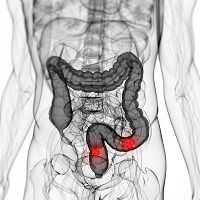Article
MicroRNAs in the Gut May Prevent Disease and Colon Damage
Author(s):
The shape of mammals’ microbiome can prevent the development of intestinal diseases, according to findings presented in the journal Cell Host & Microbe.

The shape of mammals’ microbiome can prevent the development of intestinal diseases, according to findings presented in the journal Cell Host & Microbe.
Researchers from Harvard University used mice models to demonstrate that microRNAs from the gastrointestinal tract actually protect against intestinal diseases like colitis.
“Since gut microbes play an important role in host metabolism and immunity as well as in disease, it is important to understand the mechanisms by which the microbiota is regulated by the host and to identify ways in which to manipulate the microbiome,” senior study author Howard Weiner explained in a press release. “Our findings reveal a host defense mechanism and highlight microRNAs as a strategy for manipulation of the microbiome for the health of the host.”
The study authors thought prior studies highlighted that microRNAs would play a role in the process. Initially, because the microRNA molecules regulated gene activity in various species, including viruses and humans. MicroRNA has also been identified as a factor in intestinal diseases like colorectal cancer. The researchers added that microRNA have the ability to control gene expression in mitochondria.
The microRNA produced by mice and human gastrointestinal tract cells regulated the activity of bacterial genes, and also influenced the shape of the composition of gut microbes. Mice that did not have gut microRNAs demonstrated an adjusted gut microbiome and were more susceptible to developing colitis.
After they transplanted gut microRNAs from normal mice into the deficient mice, the normal gut microbial composition was restored and the deficient mice were protected against colon damage. The researchers plan to investigate in future studies what are the underlying molecular mechanisms of this process with the hopes that they can eventually apply their findings to their clinic.
“Our study suggests that the ability of the host to control gut microbes likely provided organisms with an evolutionary advantage, that is, the prevention of diseases such as colitis and colorectal cancer,” Weiner concluded. “We are optimistic that it will one day be possible to harness this natural host defense mechanism by administering microRNAs as therapeutic compounds to improve health and treat disease.”




